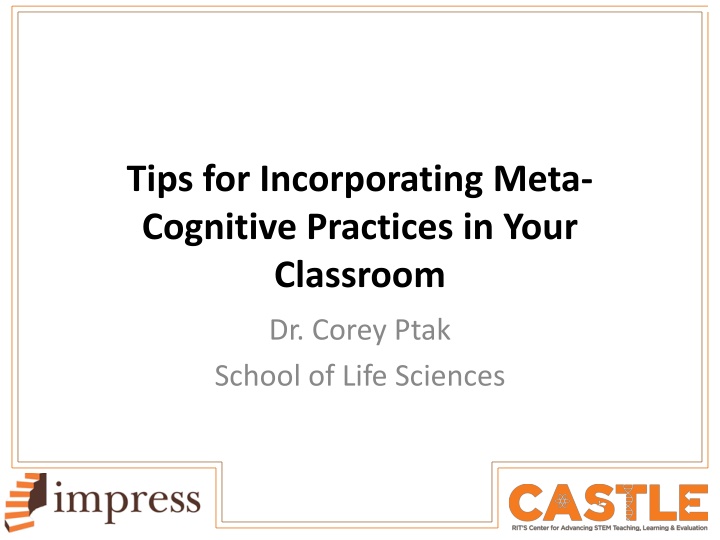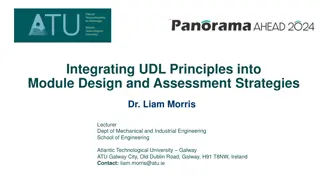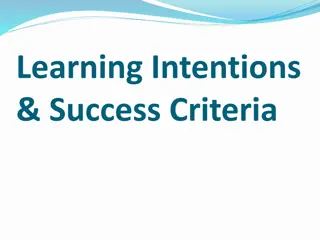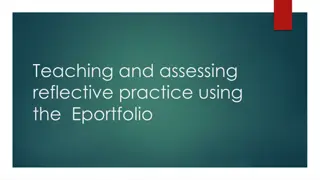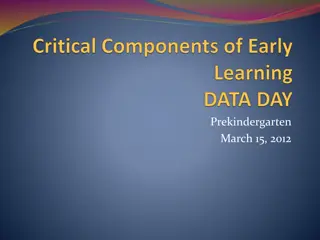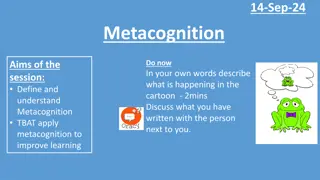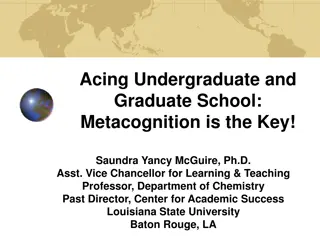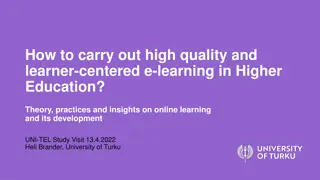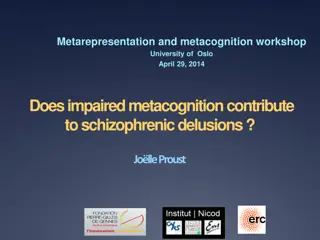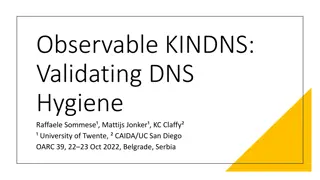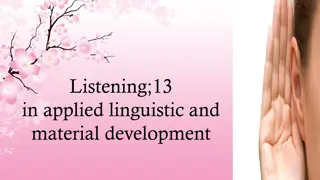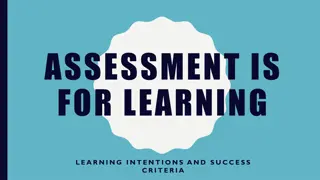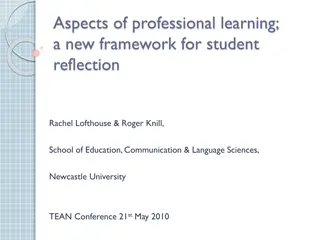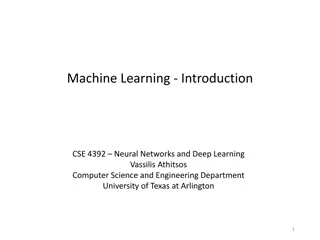Enhancing Learning Through Metacognitive Practices
Explore the significance of metacognition in education, including understanding metacognitive processes, knowledge of cognition, regulation of cognition, benefits for students, importance of self-reflection, and exercises that promote metacognition such as retrospectives and exam wrappers. Discover how incorporating metacognitive practices in the classroom can empower students to become self-aware learners, leading to improved academic performance and growth mindset development.
Download Presentation

Please find below an Image/Link to download the presentation.
The content on the website is provided AS IS for your information and personal use only. It may not be sold, licensed, or shared on other websites without obtaining consent from the author.If you encounter any issues during the download, it is possible that the publisher has removed the file from their server.
You are allowed to download the files provided on this website for personal or commercial use, subject to the condition that they are used lawfully. All files are the property of their respective owners.
The content on the website is provided AS IS for your information and personal use only. It may not be sold, licensed, or shared on other websites without obtaining consent from the author.
E N D
Presentation Transcript
Tips for Incorporating Meta- Cognitive Practices in Your Classroom Dr. Corey Ptak School of Life Sciences
What is a metacognition? Thinking about thinking used to plan, monitor, and assess one's own learning. Includes a critical awareness of a) one s thinking and learning b) oneself as a thinker and learner
Knowledge of Cognition person knowledge - understanding one s own cognitive strategies task knowledge understanding of the cognitive strategies needed to perform the task presented conditional knowledge - ability to adapt strategies to new situations.
Regulation of Cognition How an individual monitors and assesses their knowledge. This includes knowing how and when to use certain skills.
Benefits of Metacognition students become aware of their strengths and weaknesses as learners, writers, readers, test- takers, group members Students recognize the limit of their knowledge or ability and then figure out how to expand that knowledge or extend the ability
Importance of self reflection Metacognition often passive Part of hidden curriculum Reflection gives explicit time and space for metacognition
Exercises that promote metacognition Retrospectives Students begin by writing down what they think about a topic BEFORE they learn it. After the class students reread what they wrote and examine how their views have changed
Exercises that promote metacognition Exam Wrappers Post exam reflections asks students to examine how they approached the exam itself rather than the content
Exercises that promote metacognition Guided Reflections students are given a from that guides them through meaningful self reflection
Practice version available, give it a try: http://goo.gl/forms/YYHeIs6Kdp
Lets reflect - How does your response at the end differ from your response at the beginning? - What prior information did you draw on to inform your original ideas? - Was anything you learned today in conflict with your original idea? - What about the material caused you to change your mind?
